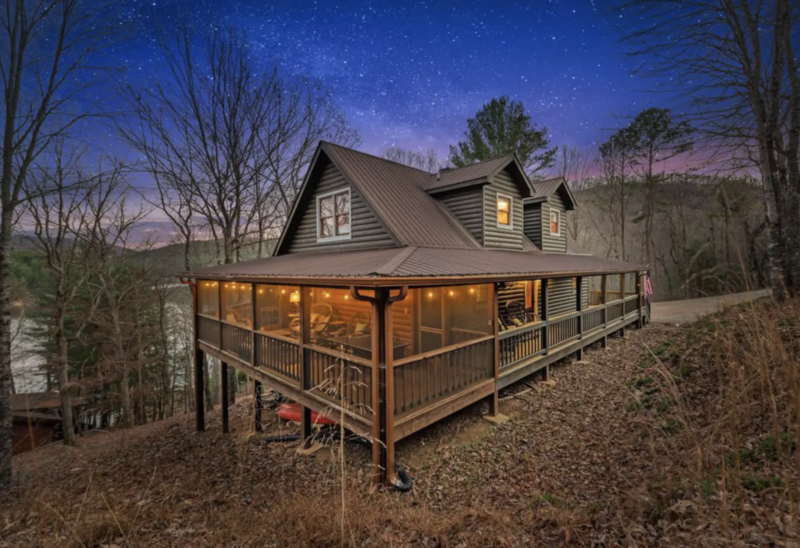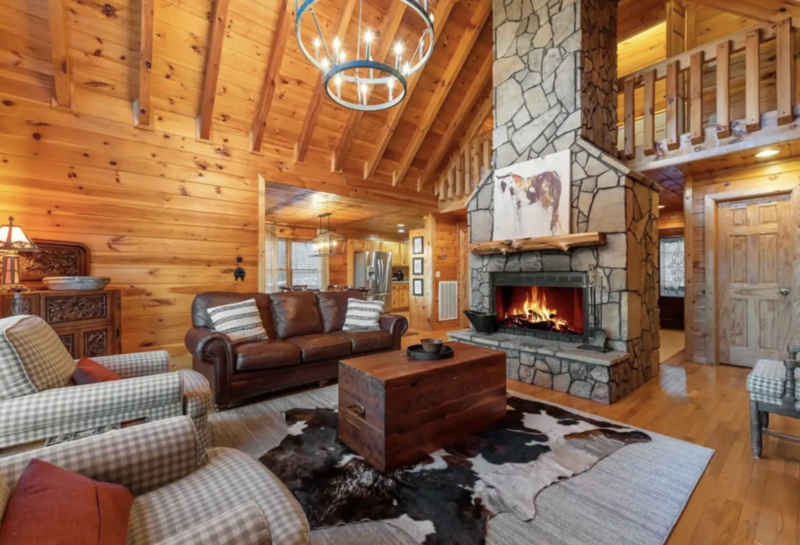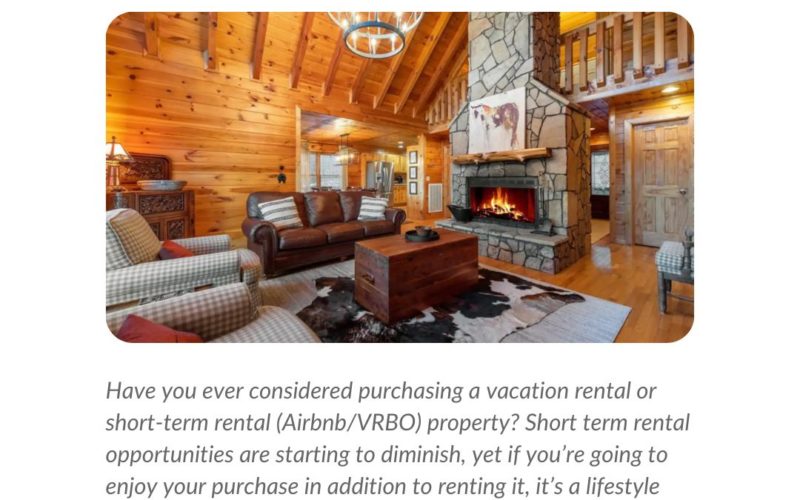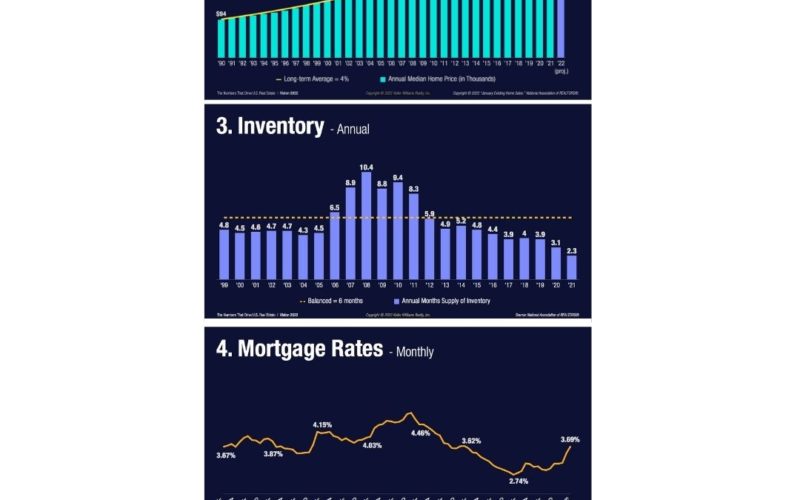Navigating the North Atlanta Real Estate Market: A Comprehensive Guide for First-Time Investors
In recent years, one term has dominated economic discussions: INFLATION. A recent survey revealed that 82% of respondents feel the impact of inflation on their household budgets. I want you to consider how investing in the North Atlanta real estate market can be a strategic response to inflationary pressures, especially for first-time investors.
The North Atlanta Real Estate Market in Numbers
Let’s start by looking at the average sales price increases over the past year in key North Atlanta cities:
Milton: From $1,001,114 in 2022 to $1,071,125 in 2023 (an increase of $70,011)
Alpharetta: From $590,609 to $643,293 (an increase of $52,684)
Roswell: From $554,821 to $598,375 (an increase of $43,554)
Woodstock: From $420,110 to $441,110 (an increase of $20,924)
This translates to an average annual increase of 7.3%.
Real Estate as a Hedge Against Inflation
So, how does real estate investment counter inflation? Here are three key ways:
• Rising Rents, Fixed Mortgages: As inflation rises, so do rental prices, while your mortgage rate stays the same. This means your return on investment increases with every rent hike.
• Paying Less Over Time: Inflation devalues future dollars. Since your mortgage payments are fixed, you effectively pay back less over time in real terms.
• Property Value Growth: Inflation typically drives up property values, enhancing the worth of your investment without increasing your mortgage debt.
Beyond Inflation: The Four Pillars of Real Estate Investment
Besides being one of the best hedges against inflation, real estate offers 4 other key benefits. Leverage, passive income, appreciation and tax write-offs.
• Leverage: Use loans from banks or mortgage companies to amplify your investment power.
• Passive Income: Rental income helps pay off your mortgage, building equity in your property.
• Appreciation: Property values tend to increase over time, boosting the worth of your investment.
• Tax Advantages: Benefits like depreciation deductions can reduce your taxable income.
Understanding Return on Investment (ROI)
Consider you buy a property for $100,000 with a 20% down payment ($20,000). If the property appreciates by 5%:
Gain: 5% of $100,000 = $5,000
ROI: $5,000 is 25% of your $20,000 investment
In comparison, to match this in a mutual fund at 10% yield, you’d need a $250,000 investment.
Getting Started in Real Estate Investment
Hopefully I’ve convinced you to at least consider the idea of investing in real estate now. So where do you start? The first step is to define, with as much detail as you can, the criteria of the investment property. Consulting with a Realtor who has experience with investment property can help you gain clarity around what makes a good investment.
• Define Your Criteria: Detail the characteristics of your desired investment property – location, size, age, HOA presence, condition, and price range.
• Local Focus: Most investors focus within 20 miles of their residence. Narrow down your search to one or two areas.
• Market Research: Use online tools to track property prices and potential rental incomes. Visit neighborhoods at different times to get a feel for the area.
• Create Your Property ‘Avatar’: Develop a clear vision of your ideal investment property to streamline your search.
• Due Diligence: Once you have a property in mind, thoroughly check financial aspects like mortgage, insurance, and HOA rules. Consider getting contractor quotes for any potential upgrades or repairs.
Take the Leap
Armed with knowledge and the right strategy, 2024 can be your year to start investing in real estate. As Warren Buffett advises, be bold when others are cautious. Consulting with a knowledgeable Realtor and lender is an excellent first step.

Tom and Joanne Curtin Discuss the History of the Curtin Team
Tom and Joanne Curtin discuss the history of the Curtin Team and how the lessons they learned have propelled them forward to build a successful real estate business in Roswell, Georgia. They discuss their success in real estate investments and outline steps they took to get there. They talk about how they committed fully to the decision to invest in real estate and emphasize taking action instead of waiting for the “perfect” opportunity.

What You Need to Know About Vacation Property Investments in Blue Ridge, GA
What You Need to Know About Vacation Property Investments in Blue Ridge, GA
Have you ever considered purchasing a vacation rental or short-term rental (Airbnb/VRBO) property? You’ve probably heard many others talk about this. If you’re like me, what you’ve heard about these properties sounds too good to be true, but you may have also heard others having terrible experiences with these investments. Short term rental opportunities are starting to diminish, yet if you’re going to enjoy your purchase in addition to renting it, it’s a lifestyle investment. While interest rates have increased and made payments higher, will it be worth more if you intend to hold for 7-10 years?

We have researched many areas and discovered that Blue Ridge, Georgia offers the most benefits for short term rental investment for buyers in the Atlanta area. Here are my top six reasons for why this could be.
1. Blue Ridge has year-round rental appeal. There are activities to enjoy in every season. Summer: Lake Blue Ridge, world-class whitewater rafting on the Ocoee River, or fly fishing on the Toccoa River are popular attractions. Fall: Foliage brings guests to the area and local festivals draw large crowds. Winter: Light Up Blue Ridge festival, Santa Express on the Blue Ridge Railway. Year-round: Trout Fishing – Fannin County is the Trout Capital of Georgia. There’s also mountain biking year-round with an abundance of trails from easy to difficult. Mercier Orchards is the largest orchard in the south. The orchard draws visitors year-round, peaking during apple picking season. Hiking: There are over 300 miles of trails and 16 beautiful waterfalls in the area.
2. Over the holidays, there’s strong demand for cabins where family and friends can come together for Thanksgiving, Christmas, and other holidays in a group setting. Year-round, there is an abundance of hiking. There are over 300 miles of trails in the area! The panhandle/30A area is popular with Atlanta buyers looking to host; however, it is very seasonal and generally limited to spring break and a few months during the summer. It can be extremely difficult to ever turn a profit.
3. Taxes: Fannin County property taxes are much lower than taxes in other counties and especially less than in the state of Florida.
4. Downtown Blue Ridge: The town is a draw for many reasons. The Historic Blue Ridge Railroad, dining, shopping, and nightlife all draw crowds. There’s an artsy vibe with many galleries. The Blue Ridge Railroad offers seasonal trips as well, such as the Firecracker Special and Santa Express. The appeal of downtown Blue Ridge is broad reaching and not reliant on one attraction. This ensures you have guests interested in visiting at all times.
5. Wineries: There are very nice wineries in the area. There are also winery tours (and craft brew tours, too). From a short-term rental benefit perspective, this brings in groups of friends coming for a fun weekend to tour the wineries, who generally will rent a cabin together.
6. Blue Ridge supports tourism. Some local governments look to control or even eliminate short term rentals by adding restrictions or large fees. The Blue Ridge economy is driven by tourism and the local government supports it. Currently, Blue Ridge requires you to obtain a Short Term Rental Certificate. The cost is minimal at $25 per year.

I have personally invested in both beach and mountain vacation properties, and Blue Ridge has been the best for us. Winter, Spring, Summer or Fall — the Blue Ridge Mountains are beautiful. We wanted to confidently help our clients invest in Blue Ridge as well. To do so, we have partnered with Tracy Krohn. Tracy has a wealth of local knowledge, having grown up here and worked in the area extensively. Tracy personally owns a vacation rental in Blue Ridge and she can help you understand recent rental income trends and operating expenses so you can make an informed investment decision. If you want to explore the area and learn more, connect with us and we’ll connect you with Tracy to get started!

Protect Your Investment with a 1031 Exchange
Raise your hand if you know what a 1031 Exchange is.
Anyone?
If you’re a real estate investor, we’re betting YOU’RE raising your hands. Both of them.
We always say that there’s no greater investment than real estate. That’s true whether you’re buying a home in which you can live or whether you’re buying homes to hold as actual investments, not unlike buying stocks or bonds.
Investors—just like The Curtin Team—know that homes are great sources of equity, not to mention boons for their tax returns, paths to greater cash flow, better diversification of their portfolios, and great ways to counter the effects of inflation.
Real estate is a GREAT investment.
But what happens when it’s time to sell an investment property?
That’s a tricky question and if you don’t have a REALTOR who’s well-versed in how to handle these transactions, you could be left holding the bag (which could be woefully free of money).
When you have a REALTOR who understands real estate investment, however, and the intricacies of a 1031 exchange, you’ll be sitting pretty when all is said and done.
With a 1031 exchange, an investor can sell a property, reinvest the proceeds, and defer ALL capital gains taxes. That’s right, ALL. To give an example, if you sold a property and had $200,000 in capital gains, you’d be subject to taxes of around $70,000, meaning you’d only have about $130,000 left to invest in a new property. After making a down payment and assuming an LTV (loan-to-value) ratio of 75%, that means you’d be able to buy a new property worth about $520,000.
But with a 1031 exchange, you’d be able to use the entire $200,000. If you had the same down payment and LTV as we cited in the previous example, you could buy a property worth about $800,000.
If you think the 1031 exchange sounds like a great idea, you’re right.
But it’s crucial—CRUCIAL—that your REALTOR understands the rules and regulations related to these exchanges. If they don’t, you could find yourself in financial hot water, and nobody wants that. There are dates and deadlines to which investors must adhere, or they’re forced to pay penalties.
The Curtin Team is well-versed in 1031 exchanges and understands their ins and outs; we know that when your investments are on the line, there’s no room for error, no time for dilly-dally. We make sure that your investments—your hard-earned money—are protected.
If you’re interested in investing in real estate and have questions, or if you’re thinking of selling an investment property, talk to us. We’re experienced with investors and will make sure your dollars are working as hard as they can for you, and that they’re kept safe.

What I Would Spend Money On If I Was Renovating
There are endless possibilities of what you can spend money on to improve your home. From simple upgrades to massive renovations, it can be overwhelming deciding where to start. To help, we’ve put together a list of priorities as we see it from a Realtor’s perspective. It’s important to start with what you love and enjoy (especially if you plan to be in your home for at least 4 more years) and prioritize the area of your home that you know you’ll get the most enjoyment out of first. On the other end, if there’s something in your home that causes you stress every time you see it, change it. Renovating can be a challenge, but assessing your wants, needs, and budget is a great first step.
Up To $5,000 Budget
1. Interior Paint – Fresh paint gives you the best bang for your buck. Depending on the size of your home, you may be able to get most of your main living area painted for under $5,000.
2. New Kitchen Backsplash / Updated Light Fixtures – An eat-in kitchen, dining room, or foyer chandelier provide a fresh, updated look without breaking the bank. If you have the builder-standard fluorescent rectangle in your kitchen: get rid of it! Replace with a new modern handing light or recessed lights.
3. New Bathroom Vanities – If you have any bathrooms that have laminate counters, this signals that the vanity is dated, too. You can purchase a new vanity that also has a built-in stone counter and new sink all together. You’ll just need to purchase a matching upgraded fixture to go with it.
4. New Front Door/ Refinishing Wood Doors – A new front door adds great curb appeal. Front doors make such an important first impression! When you’re selling your home, you always want the entrance way to be in top shape. Picture this: the buyers and their realtor approach your home, the buyers are eagerly looking around to assess the entrance, and the Realtor is trying to open the lockbox. Entry is not immediate — it can take a minute or two to get the lockbox open and enter the home. If you have rotten wood or an old pealing door, this will set the stage for a buyer’s negative impression of your home.
5. Exterior Cleaning – Power washing can be a surprisingly affordable way to make your exterior look new again. Your house, driveway, walkways, and roof can all be power washed for a fresh look. Add professional window cleaning and you’ll be looking great!
Up To $25,000 Budget
1. Flooring – Wood floors in main living areas and new carpet in bedrooms make a big difference. Real hardwood flooring is a timeless style and will never be an outdated choice. Color choices can vary and add personality but try to avoid extremes. And, you can refinish hardwood and change the look if needed.
2. Kitchen Appliance Upgrades / New Kitchen Counters – If your home is in a luxury price point, buyers will expect high-end appliances. The stove or cook top is the center piece, so consider this first.
3. Bathroom Vanities – We covered this in the $5,000 budget section, but if you have multiple bathrooms to upgrade, you’ll easily spend more than that. If your primary bathroom doesn’t have a dual vanity and you can find a way to add one, that will be a great investment. Pro-tip: This may also save you from arguments with your significant other if you’ve been sharing a sink.
4. Retiling – Primary shower and floors can often use new tiling, along with adding a standalone tub. Avoid trendy or colorful tile. Remember, light and bright is timeless.
5. Cabinet Makeover – Painting or refacing cabinets and changing out hardware is a simple but effective project.
Budget up to $100,000
1. Full Kitchen Update – New appliances, quartz or quartzite counters, backsplash, fresh paint; depending on size of kitchen, you may or may not be able to fully replace cabinets with this budget. Style and trends in kitchens change frequently. If you’re worried about making the right design choices, it’s always best to go light and bright, aiming for a timeless look that will last. The average cost of a full kitchen renovation in our area now averages over $150,000, so to stay on budget, consider hiring a professional designer who can help you find cost savings and make the right design choices.
2. Finished Basement – Adding additional finished space is a big bang for your buck. Adding a media room, an exercise room, office space, an additional bathroom, or an additional entertainment area will add huge value to a home.
3. Outdoor Living Space – An exterior gathering area like an outdoor fireplace, a new porch, or an upgraded deck are great additions. Consider high performance composite decking, a common brand is Trex, for great quality and value.
4. Exterior Upgrade – Fresh paint, a new roof, and new landscaping can transform the look of your home completely and even make your neighbors jealous with this project. Maybe they will follow your lead and paint their houses, too!
5. New Cement Siding / Windows – Many homes in our area built between the 1980s-90s were built using a siding referred to as OSB, or Orient Strand Board. One of the common brands that was used is called “LP” siding. This siding is a wood fiber glued together that deteriorates over time and is susceptible to moisture and other weather damage. New cement board siding, one of the popular brands is “Hardie Plank,” is made from a cement fiber that can withstand moisture and weather damage. If your home was built using OSB siding, it is also likely to have wooden single-pane windows. A major upgrade that will pay off when selling your home is replacing all of the siding and windows. Upgrading your windows to new dual-pane windows will enhance the curb appeal of your home and you’ll realize energy savings + noise reduction.
Renovating in today’s market requires patience and flexibility. The pandemic has caused price increases due to supply shortages and rising labor costs. Labor is hard to find, and you’ll need to plan ahead carefully with materials. We suggest that you make a plan and order supplies before you begin. Some appliances and fixtures can take weeks or months to come in, certain paints are hard to find, and the list goes on. In the end, it will be worth it! We hear it all the time: “I should have done this years ago!” Don’t delay and wait until you’re about to sell your home. Do it now and enjoy it without breaking the bank!

Rising Mortgage Rates Still At Historic Lows
Mortgage rates rose today, but rates overall are at historical lows. The average rate on a 30-year fixed mortgage is 4.47%, according to Bankrate.com, and the average rate on a 15-year mortgage is 3.64%. On a 30-year jumbo mortgage, the average rate is 4.48%, and the average rate on a 5/1 ARM is 2.96%. These rates are just averages and subject to change daily. For current rates contact your preferred lender.
During the pandemic we had historically low rates. The factors that most affect the rate increases today are inflation and economic growth. But rates can change for various reasons. Overall though, rates are expected to continue to go up this year.
Does this mean you should cancel your home buying plans? Absolutely not! Even though rates are higher than in 2021 they are still very low. 30-year fixed rates were in the high 5%’s just a few years ago.
Buying a home isn’t just about interest rates though, it’s also about making a lifestyle choice. It’s best to find right house for you when the time is right for you. Home values have historically risen and now is a good time to get in to your dream home.


